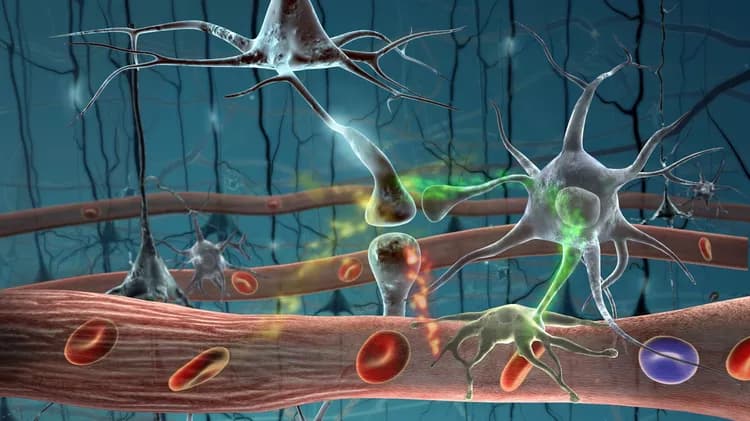
Transcranial Direct Current Stimulation Raises Glutamate Levels In Humans
The notion that low levels of electrical stimulation applied to the scalp, barely enough to create a mild tingling sensation, could activate the brain is a relatively new and somewhat controversial idea. The technique, called transcranial direct current stimulation (tDCS) has been reported to modify mood, emotion, and cognition, yet researchers lack any evidence for how -- or even if -- it directly modulates brain activity. Still, some researchers see its potential for a new strategy to treat psychiatric disorders.
A new study in Biological Psychiatry is the first to measures changes in brain metabolism during tDCS. Led by senior author Shirley Fecteau of the Université Laval in Quebec, Canada, the study reports that tDCS increases levels of the neurotransmitters glutamate + glutamine-glutamate is the main activating chemical messenger in the brain-and N-acetylaspartate (NAA), an indicator of neuronal health. Both of these neurotransmitters support learning and adaptation in the brain.
"These interesting data provide chemical evidence suggesting that tDCS may activate the human cerebral cortex," said John Krystal, Editor ofBiological Psychiatry. "This type of change would seem to be critical for producing behavioral and perhaps therapeutic effects."
In the study, the researchers applied a single tDCS session to 15 healthy participants for 30 minutes at a current intensity of 1 mA, considered a mild dose. They stimulated the prefrontal cortex, a brain region involved in behavior and cognition. During stimulation, the researchers acquired magnetic resonance spectroscopy scans to measure changes in neurotransmitter levels in the prefrontal cortex and in the striatum, an important region involved in many functions including reward and learning.
In participants who received tDCS, first author Antoine Hone-Blanchet measured a rapid increase in prefrontal NAA, within 15 minutes of stimulation, and in striatal glutamate + glutamine within 30 minutes. The levels returned to normal immediately at the end of the session. According to Fecteau, these results suggest that tDCS has a rapid but short-lived excitatory effect at and downstream from the stimulation site.
"These findings need to be replicated with greater sample size, but also compel for investigation on the neural effects of tDCS," said Fecteau, noting that the scientific community and general population have been increasingly using tDCS over the prefrontal cortex in recent years.
Researchers still do not know the effects of repeated or longer-lasting stimulation on neurochemical activity, which may be beneficial or detrimental, depending on the user, said Fecteau. Understanding the potential impact of the tool, positive and negative, will help harness its utility for effective and safe use in healthy and clinical populations.
The above post is reprinted from materials provided by Elsevier. Note: Content may be edited for style and length.
Disclaimer: DoveMed is not responsible for the adapted accuracy of news releases posted to DoveMed by contributing universities and institutions.
Primary Resource:
Hone-Blanchet, A., Edden, R. A., & Fecteau, S. (2015). Online effects of transcranial direct current stimulation in real time on human prefrontal and striatal metabolites. Biological psychiatry.
Related Articles
Test Your Knowledge
Asked by users
Related Centers
Related Specialties
Related Physicians
Related Procedures
Related Resources
Join DoveHubs
and connect with fellow professionals

0 Comments
Please log in to post a comment.